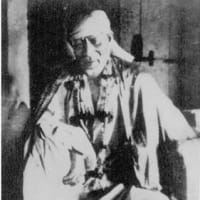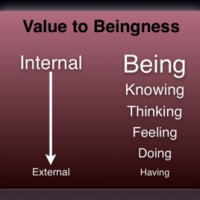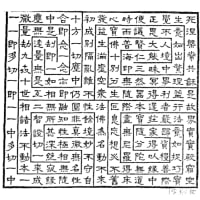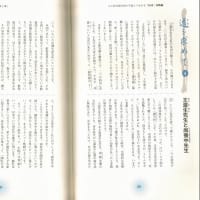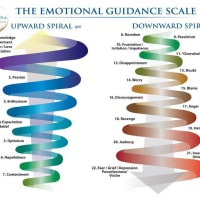TAKE FULL RESPONSIBILITY - (全責任をとります / 全責任をとってください) - 01
KEYS TO THE ULTIMATE FREEDOM
SESSION 16 TAKE FULL RESPONSIBILITY - (全責任をとります / 全責任をとってください)
以下に、続きます。:
TAKE FULL RESPONSIBILITY - (全責任をとります / 全責任をとってください) - 02
参考サイト:
パラマハンサ・ヨガナンダの成功の黄金律 (叡知シリーズ)
K大師からのメッセージ:成功の黄金律
2011年07月18日
◎深い瞑想を通じて神と接触し、神と一体化するほどに、あなたは真の成功と豊かさを手に入れることになります。まずは神を求めなさい。「私は天なる父と一つである」と祈り続けなさい。あなたの心が平和と至福で満ちたとき、それこそが神からの応答であるのです。
◎祈るときは、非常に強い気持ちが必要です。さもないと、「お前にはそんなことできっこないよ」という否定的な心の囁きに打ち勝てないからです。
裕福になりたいなら、生まれながらに裕福であるということを本当に強く信じるのです。
健康になりたいなら、生まれながらにそうであると強く信じなさい。
知恵が欲しいなら、生まれながらに自分が賢者であることを信じなさい。
あなた自身が、決意と信念の火となって、その炎が道中の全てを焼き尽くすとき、あなたは飛び交う弾丸の中を勇ましく歩いていけるのです。自分の背後に神の力を携えて。
◎たとえ今のあなたに家族や同胞がいなくても、お金を稼ぐときは、自分のためだけではなく、彼らのためにお金を稼ぐのだと思いなさい。他者への奉仕の気持ちからお金儲けの努力するとき、そこに精妙なフォースが起動して、その目的は達成されます。これは願望実現の秘法です。逆に、自分のためだけに裕福を望むなら、最終的には貧しくなるか、もしくは精神の健康を失う羽目になるでしょう。
「パラマハンサ・ヨガナンダとの対話」
パラマハンサ・ヨガナンダ - ANANDA BHAVAN 人生の芯
2013年05月24日
心に錯覚をもたらす嵐が鎮まれば、作用と反作用の波も自然におさまるのです。ですから、しなければならないことは、深い瞑想によって心の波を鎮めること、そして瞑想のなかで、エゴに偏った意識を排除することです。ひとたび、自分が因果の原因になることをやめるならば、錯覚がもたらす波は、外側では起伏をつづけても、もはや影響を与えることはなくなるのです。
欲望のネガティブな側面を考えてください。それはいつもあなたを恐れに縛りつけます。「もしこんなことが起きればどうしよう」あるいは「もしそれが起きなかったならどうしよう」と、いつも将来への心配、過去への後悔の状態に留まることになります。一方、無執着は、内側の自由と喜びの状態にいつもいられるよう助けてくれます。現在という今に幸せでいられるなら、そのときあなたは神とともにいるのです。
神にオープンになればなるほど、恩寵は私たちのなかに流れ込んできます。それは外からやって来るわけではありません。それは内側からの、私たち自身の高次の真実(リアリティ)の為せる業です。霊的意識に生きればいきるほど、エゴから離れて暮らせば暮らすほど、あまたの恩寵がやって来るのです。
KEYS TO THE ULTIMATE FREEDOM
SESSION 16 TAKE FULL RESPONSIBILITY - (全責任をとります / 全責任をとってください)
SESSION 16 TAKE FULL RESPONSIBILITY - (全責任をとります / 全責任をとってください) - 1
(2013-10-24 13:27:06 | KEYS TO THE ULTIMATE FREEDOM)
TAKE FULL RESPONSIBILITY
全責任をとります / 全責任をとってください
Would you want one practical key for quickly reaching the Goal, I would recommend that you take full responsibility for everything that happens to you. We have lost sight of our mastership and have ~eluded ourselves into thinking we are victims in a world that controls us, that pushes us around. It isn't so! We are causing what is happening to us by giving power lour power, to the external world. If you want to regain your control, you must take full responsibility.
あなたは、目標 (Goal) に速く着くために、1つの実用的なキーを望むでしょう、
あなたがあなたに起こるすべてに対する全責任をとるよう、私は勧めます。
我々は、マスターであること.(mastership) を見失いました。
そして、~を我々が我々をコントロールする世界の犠牲者であると思って自分自身とは無縁にしておいてください、それは我々に命令します。
それは、そうでありません!
外界に、我々は、下げる力を与えることによって我々に起こっていることを引き起こしています
あなたが制御を回復したいならば、
あなたは、全責任をとらなければなりません。
How to regain your control? By examining your thinking and correcting it. Develop the habit of honest introspection by asking yourself, “Wherein did I cause this to happen to me?” and holding it until the thought that caused the happening comes out of the subconscious into the conscious plane. Then you recognize your mastership I that you caused that pleasant or unpleasant experience to happen to you. The more you will do this, the easier it becomes and the more able you become, until finally, -you recognize that you were always the master.
どのように、あなたの制御を回復するために?
あなたの考えを検討して、それを修正することによって。
自分自身に尋ねることによって、正直な自己反省をする習慣を展開してください、「どこで、私はこれが私に起こる原因になりましたか?」、そして、出来事を引き起こした考えが意識的なレベル(面)に潜在意識から出てくるまでそれを持つこと。
それから、その良い感じであるか不快な経験があなたに起こる原因になったマスターであること (mastership) を、あなたは認めます。
あなたはよりこうします、それはより簡単になります、そして、あなたはより有能になります、最後に、-あなたは常にマスターであったと認めます。
Q: Then I, myself, am my own block, and other people do not influence me.
Q:
それから、私(自分自身)は私自身のブロックです、そして、他の人は私に影響しません。
Lester: Yes. It's not what other people say; if you follow their thinking it's because you want to.
レスター:
はい。
それは、他の人が言うものでありません;
あなたが彼らの考え方に従うならば、あなたがそうしたいので、それはそうです。
Q: Yes, because I think they know more than I do.
Q:
はい、私が考えるので、彼らは私がそうするより多くのものを知っています。
Lester: I say you know everything. You've got to accept this as a premise at least, if you want to grow.
レスター:
私は、あなたがすべてを知っていると言います。
成長したいならば、あなたは少なくともこれを前提と認めなければなりません。
Q: Well, I can accept that a part of me knows everything, but that part of me does not appear to be operating, because my world out there is not in good shape.
Q:
さて、向こうの世界が調子が良くないので、私の部分がすべてを知っている、しかし、私の一部が動いているように見えないことを、私は認めることができます。
Lester: It does not appear to be operating? You don't operate that part of you? That is the way you're talking! No, you operate it. You choose not to use your omniscience, your basic nature. You choose to be ignorant of your omniscience by saying, “I am a limited mind-body.” That's your choice. When you choose to identify with your real Self, then you'll see that you always were omniscient, are right now, and always will be; and you'll stop foolishly saying you're not.
レスター:
それは、動いているように見えません?
あなたは、あなたのその一員を管理しません?
それは、あなたが話している方法です!
いいえ、あなたはそれを運営します。
あなたは、全知(基本的な性格)を使わないほうを選びます。
あなたは、「私は、限られた心-体です」と言うことによって全知を知らないほうを選びます。
それは、あなたの選んだ方です。
本当の自身と一体感を持つほうを選ぶとき、それから、あなたは常に全知だったのを見て、現在正しいです
そして、常に、あります;
そして、あなたは、そうでないと言って、愚かに立ち止まります。
Q: You mean I can actually make that choice?
Q:
あなたは、私が実はその選択をすることができると言っています?
Lester::-Yes, not only you can, someday you will. When you get tired enough of all this limitation you have set up for yourself, then you'll make that choice. Who thinks all your thoughts? You do! It's all your doing. What we accept is what we choose to accept. It's always our choice. It is now our choice to be extremely limited bodies. And when you don't accept your responsibility for that, you have no possibility of getting out of that extreme limitation.
レスター:はい、あなただけはそうすることができません、いつか、あなたはそうします。
自分自身でセットアップしたこのような制限に十分にあきたようになるとき、それから、あなたはその選択をします。
誰が、あなたのすべての考えを考えますか?
あなたはします!
それは、あなたのすべてがすることです。
我々が受け入れるものは、我々が何を受け入れるほうを選ぶかということです。
それは、常に我々の選んだ方です。
とても限られた体であることは、現在我々の選んだ方です。
そして、それに対する責任を認めないとき、あなたにはその最大の制限から出る可能性がありません。
Q: I say I want to get out of that limitation and think I want to get out of that limitation and then when certain things happen I just don't get out; I'm right there in that limitation.
Q:
その制限から出て、その制限から出たいと思いたいと、私は言います、そして、特定のことが起こるとき、私はちょうど出ません;
私は、その制限でそこで正しいです。
Lester: What you need to do is not to say it, but want it so strongly that you override the contrary unconscious habits and do it!
レスター:
あなたがする必要があることは、それを言わないで、あなたが反対の潜在意識の習慣を越えるほど強くそれが欲しくなくて、それをしないことです!
Q: Overriding the unconscious habits is hard to do because they keep sneaking up on you and you don't realize sometimes you've got them.
Q:
潜在意識の習慣を越えることはそれらがあなたに忍び寄り続けるので、するのが難しいです、そして、あなたはそれらがいると時々理解しません。
Lester: It depends on how strong your desire is for the thing that you want as to whether the unconscious habits override it. We have infinite power, infinite will, and when man so wills he's immediately set free.
レスター:
あなたが潜在意識の習慣がそれを越えるかどうかに関して、望むもののために、あなたの欲求がどれくらい強いかについて、それ次第です。
無限の力、無限の意志と人が彼がすぐに自由の身にされると決意する時を、我々は持ちます。
Q: Gee, that sounds so easy.
Q:
あらまあ、それはとても簡単に聞こえます。
Lester: That's the easiest way to do it. Just will it! And it's possible for everyone of us, because we are infinite and therefore have infinite will power. And the reason why we don't do it is that we don't have that much desire for it. We still have more desire to be limited bodies.
レスター:
それは、最も簡単な最高のやり方です。
ちょっと、それはそうします!
そして、我々には無限で、したがって無限の意志力があるので、それは我々の誰にとってでも可能です。
そして、我々がなぜそれをしないかという理由が、我々にはそれに対するそんなに多くの欲求がないということです。
我々には、限られた体でありたいというより多くの願望がまだあります。
Q: I believe that anyone would take the other choice, if he really had a choice.
Q:
彼には選択が本当にあるならば、私は誰でも他の選択をすると思っています。
Lester: Oh, if you had a choice, pardon me! (Laughter) You see what's happened? You're convinced we don't have the choice.
レスター:
ああ、あなたには選択があるならば、すみません!
あなたは、何があったかについて見ます(笑い)?
あなたは、我々には選択がないことを確信しています。
Q: No. speaking from experience, sometimes when you really want something, it seems like the opposite happens.
Q:
いいえ。
経験を語って、時々あなたが何かを本当に望むとき、正反対が起こるように、それは思われます。
Lester: Everything you really wanted strongly in your life you got, because mind is only creative. These are things you have got to dig out and recognize for yourself. You're getting exactly what you want, as is everyone. Because you don't look at your thoughts and you call them unconscious does not mean you don't have them.
レスター:
心が創造的なだけであるので、あなたが得た人生で強く本当に望んだすべて。
これらは、あなたが掘り出さなければならなくて、自分自身で認めなければならないものです。
みんなのように、あなたは正確に望むものを得ています。
あなたが考えを見ない、そして、あなたがそれらを潜在意識であると言うので、あなたがそうする平均はそれらを持っています。
Q: I'm afraid of my unconscious, did you know that?
Q:
私は怖いです私の潜在意識、あなたはそれを知っていましたか?
Lester: How does that help you see your unconscious thoughts?
レスター:
どのように、それはあなたがあなたの潜在意識の考えを見るのを援助しますか?
Q: Consciously I tell them to go a way.
Q:
意識的に、私は方法で行くようにそれらに言います。
Lester: So they stay operative all the time. Thoughts have no will of their own. You have the will. Unless you pull them up into consciousness and look at them, you can't let go of them. When you see them consciously, you'll automatically let go of them, the ones you don't like, because you don't like them.
レスター:
それで、それらは常に、動いているままでいます。
考えには、それら自身の意志がありません。
あなたには、意志があります。
意識にそれらを引き上げて、それらを見ない限り、あなたはそれらを放すことができません。
意識的にそれらに会うとき、それらが好きでないので、あなたはそれら(あなたが好きでないもの)を自動的に手放します。
Q: How can you become conscious of your unconscious thoughts?
Q:
どのように、あなたは潜在意識の考えを意識しているようになることができますか?
Lester: By practice. Just the way you're doing it now; anything you want to think of comes to your mind. What you are going to say to me five minutes from now is not conscious right now, it is unconscious. Five minutes from now you'll pull up what you want. Now if we make it a habit of pulling up thoughts, we can do it easily. The more we practice it, the easier it is to do. It's a good habit; saves a lot of unnecessarily living out karma. Honest introspection works quickly and beautifully like a surgeon with a knife.
レスター:
実行によって。
まさに方法で、あなたは現在それをしています;
あなたが考えたい何でも、あなたの心に浮かびます。
あなたが行っているものは今から5分がたった今意識がないと私に言います、それは潜在意識です。
5分今から、あなたは、望むものを引き上げます。
現在、それに考えを引き上げる習慣をするならば、我々は簡単にそれをすることができます。
我々がよりそれを練習するほど、それはするためにより簡単です。それは良い習慣です;
カルマを必要以上に生き抜く多くを保存します。
正直な自己反省は、速く働きます。
そして、美しく、ナイフで外科医(サージャン)が好きにしてください。
We control the unconscious; we keep back there all that we want to keep back there, and then when we want it up in the conscious, we pull it up.
我々は、潜在意識のものを制御 (コントロール) します;
我々はそこで近寄らなくしたいというすべてをそこで取っておきます、そして、意識的なものでそれが上へ欲しいとき、我々はそれを引き寄せます。
Q: You really believe that we control it?
Q:
あなたは、我々がそれを制御すると本当に思っています?
Lester: Do I control your unconscious?
レスター:
私は、制御 (コントロール) しますあなたの潜在意識?
Q: No, I don't think you do it.
Q:
いいえ、私は、あなたがそれをすると思いません。
Lester: Then who does?
レスター:
そして、誰がしますか?
Q: Well, I don't know. I think it is unconscious control.
Q:
さてと、私は知りません。
私は、それが潜在意識の制御であると思います。
Lester: It's your unconscious. Can you remember right now things that happened yesterday that you're not conscious of? What did you have for breakfast yesterday!
レスター:
それは、そうであります、あなたの潜在意識。
あなたは、意識していないために、昨日起こったことをたった今覚えていることができますか?
あなたに役立ったことには、朝食のために昨日があります!
Q: Oh, ham and eggs!
Q:
ああ、ハムと卵!
Lester: All right, a minute ago that was unconscious, and now it is up in your consciousness, right? Do you have control of your unconscious? Can you pull things up from it? You did just then!
レスター:
良いでしょう、1分前、それは潜在意識でした、
そして、それがあなたの意識の中に上へある今、ということ?
あなたが、支配を持ちますのあなたの潜在意識?
あなたは、それからものを引き上げることができますか?
あなたは、ちょうどその時しました!
Q: But, you see that does not have any emotional impact, what I had for breakfast.
Q:
しかし、少しの感情的な影響(私が朝食のために持っていたもの)も、それにはないのを、あなたは見ます。
Lester: It had a good emotional impact. You showed you liked it. However, it does not matter whether there is emotional impact. What matters is the desire to pull up something from your unconscious.
レスター:
それには、良い感情的な影響がありました。
あなたは、それが好きであることを示しました。
しかし、感情的な影響があるかどうかは、重要でありません。
どんな問題が、何かを上へ引き離す欲求です。あなたの潜在意識。
Q: But you triggered her bringing it up. She wouldn't have brought that up otherwise.
Q:
しかし、あなたはそれをあげて、彼女を起こしました。
さもなければ、彼女はそれをあげませんでした。
Lester: Yes, but so can she. She wanted to. If she had not wanted to she just wouldn't have remembered. Pleasant things are easy to bring up and unpleasant things are difficult because we have little desire to bring up the unpleasant.
レスター:
はい、しかし、そして、彼女もそうすることができます。
彼女は、そうしたかったです。
に必要としなかったならば、彼女はちょうど今覚えていなかったでしょう。
良い感じのものはあげるのが簡単です、そして、我々には不快なものをあげたいというほとんど願望がないので、不快なものは難しいです。
Q: Do you have to go through this phase of clearing up the unconscious before you can accept the theory that you are unlimited?
Q:
無制限であるという理論を受け入れることができる前に、あなたは潜在意識のものを片づけるこの時期を経験しなければなりませんか?
Lester: It is necessary in the beginning and it also makes for rapid progress. Later, after much progress, you can will it out. There are basically two ways of growing: one is eliminating the mind, the subconscious; the other is putting in the positive, seeing who and what you are.
レスター:
それは始めに、必要です、そして、それも急速な進展に役立ちます。
後で、多くの進展の後、あなたはそれを外へ決意することができます。
成長する2つの方法が、基本的にあります:
人は、心(潜在意識)を除いています;
他は良い面を費しています。そして、あなたが誰と何であるかについて見ます。
Q: When you put in the positive doesn't the opposite seem to take effect?
Q:
あなたが良い面を費したとき、正反対は実施されるようでありませんか?
Lester: Sometimes. However, when you see your real Beingness you'll scorch the opposite. You'll say, “That's ridiculous to remain miserable, sick, unhappy, etc.” and you'll begin to scorch it. There is a tendency in the direction you're asking. If I say “hot” you think of “cold,” right? If I say “up” it implies “down.” That is in the nature of thought itself. But I wouldn't use that to imply that we can't wipe out the negative by seeing the positive that we are, because we can.
レスター:
時々。
しかし、本当の存在性 (beingness) を見るとき、あなたは正反対をこがします。
あなたは言います。
「それは、惨めなままであるためにおかしくて、病気で、不幸です、その他。」そして、あなたはそれをこがし始めます。
傾向が、あなたが尋ねている方向にあります。
私が「熱い」と言うならば、正しく、あなたは「寒さ」について考えます?
私が「上へ」と言うならば、それは「下へ」を意味します。
それは、思案そのものの性質を帯びています。
しかし、我々がそうすることができるので、我々がそうである良い面を見ることによって否定を一掃することができないことを意味するために、私はそれを使いません。
Q: Well, I don't know. You see, at the hospital I went around trying to use light, love and peace because I thought that these were the 'things that were essential. And it seemed like the more I tried to dwell on light, love and peace the worse things got.
Q:
さてと、私は知りません。
えーと、これらが『重要だったもの』であると思ったので光、愛と平和を使おうとして、私が見て回った病院で。
そして、私がより光、愛と平和のことをくよくよしようとしたほどものがより悪くなったように、それは思われました。
Lester: Love is something that can't be turned on and off. Either you've got it or you haven't. If you have love you may say horrible things to people and they don't mind it. So this thing called love isn't something we can turn on and off like a faucet. We can only express it to the degree that we have it. Now, if you have love for these people you would want them to have what they want.
レスター:
愛は、オン/オフされることができない何かです。
あなたはそれを持っています、または、あなたはそうしませんでした。
愛があるならば、あなたは人々に恐ろしいものを言うかもしれません、そして、彼らはそれを気にしません。
愛と呼ばれているこのものが何かでないように、我々は時々蛇口のようになることができます。
我々は、それを我々がそれを持つ程度に表現することができるだけです。
現在、これらの人々に対する愛情があるならば、あなたは彼らが彼らが望むものを持っていることを望むでしょう。
Q: So what I'm doing is playing an ego game?
Q:
それで、私がしていることは、自我ゲームをしています?
Lester: Yes. Can you see it? When you see it, that's good. Then you will, I hope, let go of it.
レスター:
はい。
あなたは、それを見ることができますか?
あなたがそれを見るとき、それはよいです。
それから、あなたはそうします ― 私が望む ― それを手放してください。
Q: By the way, you mentioned before that by bringing up the subconscious you could eliminate karma. How?
Q:
ところで、潜在意識をあげることによってそれの前に、カルマを除くことができると、あなたは言いました。
どのように?
Lester: Karma is in the thought, not in the act. When you do something, it's the thought that's carried over in the subconscious that instigates the act next time. Eliminate subconscious thought and you eliminate future karma. It's the thought that carries over from lifetime to lifetime. So if you bring the thought up and you reverse it, karmically it's gone.
レスター:
行為においてでない、カルマは考えの中にあります。
あなたが何かするとき、それが次に行為を扇動することを潜在意識で持ち越されるのは考えです。
潜在意識の思案を除いてください、そして、あなたは将来のカルマを除きます。
生涯から生涯までもう一度持ち運ぶのは、考えです。
それで、あなたが考えをあげる、そして、あなたがそれを翻す(ひるがえす)ならば、
因縁 (karmicな前後関係で。) に、それは行きました。
Q: I want to know how to control what you think. I do not feel I can control how I think.
Q:
私は、あなたが何を考えるかについて制御する方法を知っていたいです。
私は、どのように考えるかについて制御することができるのを感じません。
Lester: You do it by first accepting the idea that you can. Then you try it and you succeed once; when you succeed once then you know you can try it again. When you succeed twice, the second time is easier. The third time is yet easier than the first two, etc. The more you do it the easier it gets. This leads to complete control and freedom.
レスター:
あなたは、最初にそうすることができる考えを受け入れることで、それをします。
それから、あなたはそれをためします、そして、あなたはかつて成功します;
それから一度成功するとき、あなたは再びそれをためすことができるということを知っています。
あなたが二回成功するとき、2回めはより簡単です。
第3の時間はこれまでに最初の2つ、その他より簡単です。そして、あなたがよりそれをするほどより簡単になります。
これは、完全な支配と自由に至ります。
Q: By control you mean changing your thinking?
Q:
制御によって、あなたは考えを変えることを意味します?
Lester: Yes. We control all our thinking. If I do something wrong it's because I decide to carry out something wrong, that's all. And if I make it unconscious, I do it. Did I hear you say, “Take full responsibility?” that's it! If you want to grow you must take full responsibility for everything you do, for everything that happens to you. Trace all happenings to their originating thought in your mind.
レスター:
はい。
我々は、すべての考え方を制御します。
私が間違った何かを運び出すことに決めるので私がそれがそうである間違った何かをするならば、それで全部だ。
そして、それを潜在意識にするならば、私はそれをします。
私は、あなたが言うのを聞きました、
「全責任をとります?」、それそれ!
成長したいならば、あなたに起こるすべてのために、するすべてに対する全責任を、あなたはとらなければなりません。
あなたの心ですべての出来事をそれらの始まっている考えまでたどってください。
Q: I still feel I can hurt people.
Q:
私は、人々を傷つけることができるのをまだ感じます。
Lester: You can't. People hurt themselves; you don't hurt them.
レスター:
あなたは、そうすることができません。
人々は、怪我をしました;
あなたは、彼らを傷つけません。
Q: I wish I could finally see that.
Q:
私は、それをようやく見ることができたことを願います。
Lester: I call you” stupid.” You've got a certain reaction there, right? It wasn't good, was it? Who made you feel sad? You thought, “Well, he called me stupid, well, I'm going to feel sad.” All right, now I say, “You're brilliant.” You thought, “He called me brilliant. I'm going to feel happy.” But you do the up and down in your feeling; I don't do it. I come out with a sound “stupid” “brilliant” and you choose the way you feel about it. It's just a little tiny bit of sound energy that went from me to you, to your ears, and you felt first sad, then happy. You did all the doing there. Can you see that?
レスター:
私は、あなたに電話をします」ばかな。」
正しく、あなたは特定の反応をそこに持っています?
それは、よくありませんでしたね?
誰が、あなたを悲しいと感じさせましたか?
あなたは考えました、
「さて、彼は私をばかであると言いました。さて、私は悲しいと感じるつもりです。」
良いでしょう、私が言う今、「あなたはすばらしいです。」
あなたは思いました。「彼は、私をすばらしいと言いました。
私は、幸せであると感じるつもりです。」
しかし、あなたは感覚で上下をします;
私は、それをしません。
私は、音を「おろかな(ばかな)」「すばらしい(ブリリアント)」を出します。そして、あなたはそれについて思う方法を選びます。
あなたの耳に、それは私からあなたへ行ったほんの少し微小なしっかりしたエネルギーです。そして、あなたは最初に悲しく、それから幸せであると感じました。
あなたは、すべてのそこですることをしました。
あなたは、それを見ることができますか?
Q: Well, if I can't hurt anyone. I can't help anyone either!
Q:
さて、私が誰も傷つけることができないならば。
私には、誰も助けられないです!
Lester: Yes, that's true.
レスター:
はい、それは真実です。
Q: This business of when you try to put in the positive thought and oftentimes the negative seems to be strengthened, is it because while you're putting in the positive, you're holding onto what you're fighting? So that all you need to do is just do it?
Q:
あなたがいつに試みるかというこのビジネスが、前向きな考えを費しました、そして、しばしば、否定は強化されるようです、それであなたが良い面を費しているので、あります、あなたは、戦っているものにしがみついています?
あなたがする必要があるすべてがちょうどそれをすることであるように?
Lester: Yes. When you want to do it enough, you'll just do it.
レスター:
はい。
それを十分にしたいとき、あなたはちょうどそれをします。
Q: When you do that, you just let go of it. You don't hold it in mind and it isn't.
Q:
そうするとき、あなたはちょうどそれを手放しました。
あなたは心でそれを持ちません、そして、それはそうでありません。
Lester: Right! When the conscious wish to let go is stronger than the unconscious wish to hold on, then you let go. These habits are very strong; the unconscious wish for them is very strong. The conscious wish has to be stronger to override it.
レスター:
権利!
手放す意識的な願望が、続きたいという無意識の願いより強いとき、それから、あなたは手放しました。
これらの習慣は、非常に強いです;
それらに対する無意識の願望は、非常に強いです。
意識的な願望は、それを越えるためにより強くなければなりません。
続きます。:
TAKE FULL RESPONSIBILITY - (全責任をとります / 全責任をとってください) - 02
KEYS TO THE ULTIMATE FREEDOM
SESSION 16 TAKE FULL RESPONSIBILITY
SESSION 16 TAKE FULL RESPONSIBILITY - (全責任をとります / 全責任をとってください) - 2
2013-10-24 13:30:50 | KEYS TO THE ULTIMATE FREEDOM
KEYS TO THE ULTIMATE FREEDOM
SESSION 16 TAKE FULL RESPONSIBILITY - (全責任をとります / 全責任をとってください)
以下に、続きます。:
TAKE FULL RESPONSIBILITY - (全責任をとります / 全責任をとってください) - 02
参考サイト:
パラマハンサ・ヨガナンダの成功の黄金律 (叡知シリーズ)
K大師からのメッセージ:成功の黄金律
2011年07月18日
◎深い瞑想を通じて神と接触し、神と一体化するほどに、あなたは真の成功と豊かさを手に入れることになります。まずは神を求めなさい。「私は天なる父と一つである」と祈り続けなさい。あなたの心が平和と至福で満ちたとき、それこそが神からの応答であるのです。
◎祈るときは、非常に強い気持ちが必要です。さもないと、「お前にはそんなことできっこないよ」という否定的な心の囁きに打ち勝てないからです。
裕福になりたいなら、生まれながらに裕福であるということを本当に強く信じるのです。
健康になりたいなら、生まれながらにそうであると強く信じなさい。
知恵が欲しいなら、生まれながらに自分が賢者であることを信じなさい。
あなた自身が、決意と信念の火となって、その炎が道中の全てを焼き尽くすとき、あなたは飛び交う弾丸の中を勇ましく歩いていけるのです。自分の背後に神の力を携えて。
◎たとえ今のあなたに家族や同胞がいなくても、お金を稼ぐときは、自分のためだけではなく、彼らのためにお金を稼ぐのだと思いなさい。他者への奉仕の気持ちからお金儲けの努力するとき、そこに精妙なフォースが起動して、その目的は達成されます。これは願望実現の秘法です。逆に、自分のためだけに裕福を望むなら、最終的には貧しくなるか、もしくは精神の健康を失う羽目になるでしょう。
「パラマハンサ・ヨガナンダとの対話」
パラマハンサ・ヨガナンダ - ANANDA BHAVAN 人生の芯
2013年05月24日
心に錯覚をもたらす嵐が鎮まれば、作用と反作用の波も自然におさまるのです。ですから、しなければならないことは、深い瞑想によって心の波を鎮めること、そして瞑想のなかで、エゴに偏った意識を排除することです。ひとたび、自分が因果の原因になることをやめるならば、錯覚がもたらす波は、外側では起伏をつづけても、もはや影響を与えることはなくなるのです。
欲望のネガティブな側面を考えてください。それはいつもあなたを恐れに縛りつけます。「もしこんなことが起きればどうしよう」あるいは「もしそれが起きなかったならどうしよう」と、いつも将来への心配、過去への後悔の状態に留まることになります。一方、無執着は、内側の自由と喜びの状態にいつもいられるよう助けてくれます。現在という今に幸せでいられるなら、そのときあなたは神とともにいるのです。
神にオープンになればなるほど、恩寵は私たちのなかに流れ込んできます。それは外からやって来るわけではありません。それは内側からの、私たち自身の高次の真実(リアリティ)の為せる業です。霊的意識に生きればいきるほど、エゴから離れて暮らせば暮らすほど、あまたの恩寵がやって来るのです。
KEYS TO THE ULTIMATE FREEDOM
SESSION 16 TAKE FULL RESPONSIBILITY - (全責任をとります / 全責任をとってください)
SESSION 16 TAKE FULL RESPONSIBILITY - (全責任をとります / 全責任をとってください) - 1
(2013-10-24 13:27:06 | KEYS TO THE ULTIMATE FREEDOM)
TAKE FULL RESPONSIBILITY
全責任をとります / 全責任をとってください
Would you want one practical key for quickly reaching the Goal, I would recommend that you take full responsibility for everything that happens to you. We have lost sight of our mastership and have ~eluded ourselves into thinking we are victims in a world that controls us, that pushes us around. It isn't so! We are causing what is happening to us by giving power lour power, to the external world. If you want to regain your control, you must take full responsibility.
あなたは、目標 (Goal) に速く着くために、1つの実用的なキーを望むでしょう、
あなたがあなたに起こるすべてに対する全責任をとるよう、私は勧めます。
我々は、マスターであること.(mastership) を見失いました。
そして、~を我々が我々をコントロールする世界の犠牲者であると思って自分自身とは無縁にしておいてください、それは我々に命令します。
それは、そうでありません!
外界に、我々は、下げる力を与えることによって我々に起こっていることを引き起こしています
あなたが制御を回復したいならば、
あなたは、全責任をとらなければなりません。
How to regain your control? By examining your thinking and correcting it. Develop the habit of honest introspection by asking yourself, “Wherein did I cause this to happen to me?” and holding it until the thought that caused the happening comes out of the subconscious into the conscious plane. Then you recognize your mastership I that you caused that pleasant or unpleasant experience to happen to you. The more you will do this, the easier it becomes and the more able you become, until finally, -you recognize that you were always the master.
どのように、あなたの制御を回復するために?
あなたの考えを検討して、それを修正することによって。
自分自身に尋ねることによって、正直な自己反省をする習慣を展開してください、「どこで、私はこれが私に起こる原因になりましたか?」、そして、出来事を引き起こした考えが意識的なレベル(面)に潜在意識から出てくるまでそれを持つこと。
それから、その良い感じであるか不快な経験があなたに起こる原因になったマスターであること (mastership) を、あなたは認めます。
あなたはよりこうします、それはより簡単になります、そして、あなたはより有能になります、最後に、-あなたは常にマスターであったと認めます。
Q: Then I, myself, am my own block, and other people do not influence me.
Q:
それから、私(自分自身)は私自身のブロックです、そして、他の人は私に影響しません。
Lester: Yes. It's not what other people say; if you follow their thinking it's because you want to.
レスター:
はい。
それは、他の人が言うものでありません;
あなたが彼らの考え方に従うならば、あなたがそうしたいので、それはそうです。
Q: Yes, because I think they know more than I do.
Q:
はい、私が考えるので、彼らは私がそうするより多くのものを知っています。
Lester: I say you know everything. You've got to accept this as a premise at least, if you want to grow.
レスター:
私は、あなたがすべてを知っていると言います。
成長したいならば、あなたは少なくともこれを前提と認めなければなりません。
Q: Well, I can accept that a part of me knows everything, but that part of me does not appear to be operating, because my world out there is not in good shape.
Q:
さて、向こうの世界が調子が良くないので、私の部分がすべてを知っている、しかし、私の一部が動いているように見えないことを、私は認めることができます。
Lester: It does not appear to be operating? You don't operate that part of you? That is the way you're talking! No, you operate it. You choose not to use your omniscience, your basic nature. You choose to be ignorant of your omniscience by saying, “I am a limited mind-body.” That's your choice. When you choose to identify with your real Self, then you'll see that you always were omniscient, are right now, and always will be; and you'll stop foolishly saying you're not.
レスター:
それは、動いているように見えません?
あなたは、あなたのその一員を管理しません?
それは、あなたが話している方法です!
いいえ、あなたはそれを運営します。
あなたは、全知(基本的な性格)を使わないほうを選びます。
あなたは、「私は、限られた心-体です」と言うことによって全知を知らないほうを選びます。
それは、あなたの選んだ方です。
本当の自身と一体感を持つほうを選ぶとき、それから、あなたは常に全知だったのを見て、現在正しいです
そして、常に、あります;
そして、あなたは、そうでないと言って、愚かに立ち止まります。
Q: You mean I can actually make that choice?
Q:
あなたは、私が実はその選択をすることができると言っています?
Lester::-Yes, not only you can, someday you will. When you get tired enough of all this limitation you have set up for yourself, then you'll make that choice. Who thinks all your thoughts? You do! It's all your doing. What we accept is what we choose to accept. It's always our choice. It is now our choice to be extremely limited bodies. And when you don't accept your responsibility for that, you have no possibility of getting out of that extreme limitation.
レスター:はい、あなただけはそうすることができません、いつか、あなたはそうします。
自分自身でセットアップしたこのような制限に十分にあきたようになるとき、それから、あなたはその選択をします。
誰が、あなたのすべての考えを考えますか?
あなたはします!
それは、あなたのすべてがすることです。
我々が受け入れるものは、我々が何を受け入れるほうを選ぶかということです。
それは、常に我々の選んだ方です。
とても限られた体であることは、現在我々の選んだ方です。
そして、それに対する責任を認めないとき、あなたにはその最大の制限から出る可能性がありません。
Q: I say I want to get out of that limitation and think I want to get out of that limitation and then when certain things happen I just don't get out; I'm right there in that limitation.
Q:
その制限から出て、その制限から出たいと思いたいと、私は言います、そして、特定のことが起こるとき、私はちょうど出ません;
私は、その制限でそこで正しいです。
Lester: What you need to do is not to say it, but want it so strongly that you override the contrary unconscious habits and do it!
レスター:
あなたがする必要があることは、それを言わないで、あなたが反対の潜在意識の習慣を越えるほど強くそれが欲しくなくて、それをしないことです!
Q: Overriding the unconscious habits is hard to do because they keep sneaking up on you and you don't realize sometimes you've got them.
Q:
潜在意識の習慣を越えることはそれらがあなたに忍び寄り続けるので、するのが難しいです、そして、あなたはそれらがいると時々理解しません。
Lester: It depends on how strong your desire is for the thing that you want as to whether the unconscious habits override it. We have infinite power, infinite will, and when man so wills he's immediately set free.
レスター:
あなたが潜在意識の習慣がそれを越えるかどうかに関して、望むもののために、あなたの欲求がどれくらい強いかについて、それ次第です。
無限の力、無限の意志と人が彼がすぐに自由の身にされると決意する時を、我々は持ちます。
Q: Gee, that sounds so easy.
Q:
あらまあ、それはとても簡単に聞こえます。
Lester: That's the easiest way to do it. Just will it! And it's possible for everyone of us, because we are infinite and therefore have infinite will power. And the reason why we don't do it is that we don't have that much desire for it. We still have more desire to be limited bodies.
レスター:
それは、最も簡単な最高のやり方です。
ちょっと、それはそうします!
そして、我々には無限で、したがって無限の意志力があるので、それは我々の誰にとってでも可能です。
そして、我々がなぜそれをしないかという理由が、我々にはそれに対するそんなに多くの欲求がないということです。
我々には、限られた体でありたいというより多くの願望がまだあります。
Q: I believe that anyone would take the other choice, if he really had a choice.
Q:
彼には選択が本当にあるならば、私は誰でも他の選択をすると思っています。
Lester: Oh, if you had a choice, pardon me! (Laughter) You see what's happened? You're convinced we don't have the choice.
レスター:
ああ、あなたには選択があるならば、すみません!
あなたは、何があったかについて見ます(笑い)?
あなたは、我々には選択がないことを確信しています。
Q: No. speaking from experience, sometimes when you really want something, it seems like the opposite happens.
Q:
いいえ。
経験を語って、時々あなたが何かを本当に望むとき、正反対が起こるように、それは思われます。
Lester: Everything you really wanted strongly in your life you got, because mind is only creative. These are things you have got to dig out and recognize for yourself. You're getting exactly what you want, as is everyone. Because you don't look at your thoughts and you call them unconscious does not mean you don't have them.
レスター:
心が創造的なだけであるので、あなたが得た人生で強く本当に望んだすべて。
これらは、あなたが掘り出さなければならなくて、自分自身で認めなければならないものです。
みんなのように、あなたは正確に望むものを得ています。
あなたが考えを見ない、そして、あなたがそれらを潜在意識であると言うので、あなたがそうする平均はそれらを持っています。
Q: I'm afraid of my unconscious, did you know that?
Q:
私は怖いです私の潜在意識、あなたはそれを知っていましたか?
Lester: How does that help you see your unconscious thoughts?
レスター:
どのように、それはあなたがあなたの潜在意識の考えを見るのを援助しますか?
Q: Consciously I tell them to go a way.
Q:
意識的に、私は方法で行くようにそれらに言います。
Lester: So they stay operative all the time. Thoughts have no will of their own. You have the will. Unless you pull them up into consciousness and look at them, you can't let go of them. When you see them consciously, you'll automatically let go of them, the ones you don't like, because you don't like them.
レスター:
それで、それらは常に、動いているままでいます。
考えには、それら自身の意志がありません。
あなたには、意志があります。
意識にそれらを引き上げて、それらを見ない限り、あなたはそれらを放すことができません。
意識的にそれらに会うとき、それらが好きでないので、あなたはそれら(あなたが好きでないもの)を自動的に手放します。
Q: How can you become conscious of your unconscious thoughts?
Q:
どのように、あなたは潜在意識の考えを意識しているようになることができますか?
Lester: By practice. Just the way you're doing it now; anything you want to think of comes to your mind. What you are going to say to me five minutes from now is not conscious right now, it is unconscious. Five minutes from now you'll pull up what you want. Now if we make it a habit of pulling up thoughts, we can do it easily. The more we practice it, the easier it is to do. It's a good habit; saves a lot of unnecessarily living out karma. Honest introspection works quickly and beautifully like a surgeon with a knife.
レスター:
実行によって。
まさに方法で、あなたは現在それをしています;
あなたが考えたい何でも、あなたの心に浮かびます。
あなたが行っているものは今から5分がたった今意識がないと私に言います、それは潜在意識です。
5分今から、あなたは、望むものを引き上げます。
現在、それに考えを引き上げる習慣をするならば、我々は簡単にそれをすることができます。
我々がよりそれを練習するほど、それはするためにより簡単です。それは良い習慣です;
カルマを必要以上に生き抜く多くを保存します。
正直な自己反省は、速く働きます。
そして、美しく、ナイフで外科医(サージャン)が好きにしてください。
We control the unconscious; we keep back there all that we want to keep back there, and then when we want it up in the conscious, we pull it up.
我々は、潜在意識のものを制御 (コントロール) します;
我々はそこで近寄らなくしたいというすべてをそこで取っておきます、そして、意識的なものでそれが上へ欲しいとき、我々はそれを引き寄せます。
Q: You really believe that we control it?
Q:
あなたは、我々がそれを制御すると本当に思っています?
Lester: Do I control your unconscious?
レスター:
私は、制御 (コントロール) しますあなたの潜在意識?
Q: No, I don't think you do it.
Q:
いいえ、私は、あなたがそれをすると思いません。
Lester: Then who does?
レスター:
そして、誰がしますか?
Q: Well, I don't know. I think it is unconscious control.
Q:
さてと、私は知りません。
私は、それが潜在意識の制御であると思います。
Lester: It's your unconscious. Can you remember right now things that happened yesterday that you're not conscious of? What did you have for breakfast yesterday!
レスター:
それは、そうであります、あなたの潜在意識。
あなたは、意識していないために、昨日起こったことをたった今覚えていることができますか?
あなたに役立ったことには、朝食のために昨日があります!
Q: Oh, ham and eggs!
Q:
ああ、ハムと卵!
Lester: All right, a minute ago that was unconscious, and now it is up in your consciousness, right? Do you have control of your unconscious? Can you pull things up from it? You did just then!
レスター:
良いでしょう、1分前、それは潜在意識でした、
そして、それがあなたの意識の中に上へある今、ということ?
あなたが、支配を持ちますのあなたの潜在意識?
あなたは、それからものを引き上げることができますか?
あなたは、ちょうどその時しました!
Q: But, you see that does not have any emotional impact, what I had for breakfast.
Q:
しかし、少しの感情的な影響(私が朝食のために持っていたもの)も、それにはないのを、あなたは見ます。
Lester: It had a good emotional impact. You showed you liked it. However, it does not matter whether there is emotional impact. What matters is the desire to pull up something from your unconscious.
レスター:
それには、良い感情的な影響がありました。
あなたは、それが好きであることを示しました。
しかし、感情的な影響があるかどうかは、重要でありません。
どんな問題が、何かを上へ引き離す欲求です。あなたの潜在意識。
Q: But you triggered her bringing it up. She wouldn't have brought that up otherwise.
Q:
しかし、あなたはそれをあげて、彼女を起こしました。
さもなければ、彼女はそれをあげませんでした。
Lester: Yes, but so can she. She wanted to. If she had not wanted to she just wouldn't have remembered. Pleasant things are easy to bring up and unpleasant things are difficult because we have little desire to bring up the unpleasant.
レスター:
はい、しかし、そして、彼女もそうすることができます。
彼女は、そうしたかったです。
に必要としなかったならば、彼女はちょうど今覚えていなかったでしょう。
良い感じのものはあげるのが簡単です、そして、我々には不快なものをあげたいというほとんど願望がないので、不快なものは難しいです。
Q: Do you have to go through this phase of clearing up the unconscious before you can accept the theory that you are unlimited?
Q:
無制限であるという理論を受け入れることができる前に、あなたは潜在意識のものを片づけるこの時期を経験しなければなりませんか?
Lester: It is necessary in the beginning and it also makes for rapid progress. Later, after much progress, you can will it out. There are basically two ways of growing: one is eliminating the mind, the subconscious; the other is putting in the positive, seeing who and what you are.
レスター:
それは始めに、必要です、そして、それも急速な進展に役立ちます。
後で、多くの進展の後、あなたはそれを外へ決意することができます。
成長する2つの方法が、基本的にあります:
人は、心(潜在意識)を除いています;
他は良い面を費しています。そして、あなたが誰と何であるかについて見ます。
Q: When you put in the positive doesn't the opposite seem to take effect?
Q:
あなたが良い面を費したとき、正反対は実施されるようでありませんか?
Lester: Sometimes. However, when you see your real Beingness you'll scorch the opposite. You'll say, “That's ridiculous to remain miserable, sick, unhappy, etc.” and you'll begin to scorch it. There is a tendency in the direction you're asking. If I say “hot” you think of “cold,” right? If I say “up” it implies “down.” That is in the nature of thought itself. But I wouldn't use that to imply that we can't wipe out the negative by seeing the positive that we are, because we can.
レスター:
時々。
しかし、本当の存在性 (beingness) を見るとき、あなたは正反対をこがします。
あなたは言います。
「それは、惨めなままであるためにおかしくて、病気で、不幸です、その他。」そして、あなたはそれをこがし始めます。
傾向が、あなたが尋ねている方向にあります。
私が「熱い」と言うならば、正しく、あなたは「寒さ」について考えます?
私が「上へ」と言うならば、それは「下へ」を意味します。
それは、思案そのものの性質を帯びています。
しかし、我々がそうすることができるので、我々がそうである良い面を見ることによって否定を一掃することができないことを意味するために、私はそれを使いません。
Q: Well, I don't know. You see, at the hospital I went around trying to use light, love and peace because I thought that these were the 'things that were essential. And it seemed like the more I tried to dwell on light, love and peace the worse things got.
Q:
さてと、私は知りません。
えーと、これらが『重要だったもの』であると思ったので光、愛と平和を使おうとして、私が見て回った病院で。
そして、私がより光、愛と平和のことをくよくよしようとしたほどものがより悪くなったように、それは思われました。
Lester: Love is something that can't be turned on and off. Either you've got it or you haven't. If you have love you may say horrible things to people and they don't mind it. So this thing called love isn't something we can turn on and off like a faucet. We can only express it to the degree that we have it. Now, if you have love for these people you would want them to have what they want.
レスター:
愛は、オン/オフされることができない何かです。
あなたはそれを持っています、または、あなたはそうしませんでした。
愛があるならば、あなたは人々に恐ろしいものを言うかもしれません、そして、彼らはそれを気にしません。
愛と呼ばれているこのものが何かでないように、我々は時々蛇口のようになることができます。
我々は、それを我々がそれを持つ程度に表現することができるだけです。
現在、これらの人々に対する愛情があるならば、あなたは彼らが彼らが望むものを持っていることを望むでしょう。
Q: So what I'm doing is playing an ego game?
Q:
それで、私がしていることは、自我ゲームをしています?
Lester: Yes. Can you see it? When you see it, that's good. Then you will, I hope, let go of it.
レスター:
はい。
あなたは、それを見ることができますか?
あなたがそれを見るとき、それはよいです。
それから、あなたはそうします ― 私が望む ― それを手放してください。
Q: By the way, you mentioned before that by bringing up the subconscious you could eliminate karma. How?
Q:
ところで、潜在意識をあげることによってそれの前に、カルマを除くことができると、あなたは言いました。
どのように?
Lester: Karma is in the thought, not in the act. When you do something, it's the thought that's carried over in the subconscious that instigates the act next time. Eliminate subconscious thought and you eliminate future karma. It's the thought that carries over from lifetime to lifetime. So if you bring the thought up and you reverse it, karmically it's gone.
レスター:
行為においてでない、カルマは考えの中にあります。
あなたが何かするとき、それが次に行為を扇動することを潜在意識で持ち越されるのは考えです。
潜在意識の思案を除いてください、そして、あなたは将来のカルマを除きます。
生涯から生涯までもう一度持ち運ぶのは、考えです。
それで、あなたが考えをあげる、そして、あなたがそれを翻す(ひるがえす)ならば、
因縁 (karmicな前後関係で。) に、それは行きました。
Q: I want to know how to control what you think. I do not feel I can control how I think.
Q:
私は、あなたが何を考えるかについて制御する方法を知っていたいです。
私は、どのように考えるかについて制御することができるのを感じません。
Lester: You do it by first accepting the idea that you can. Then you try it and you succeed once; when you succeed once then you know you can try it again. When you succeed twice, the second time is easier. The third time is yet easier than the first two, etc. The more you do it the easier it gets. This leads to complete control and freedom.
レスター:
あなたは、最初にそうすることができる考えを受け入れることで、それをします。
それから、あなたはそれをためします、そして、あなたはかつて成功します;
それから一度成功するとき、あなたは再びそれをためすことができるということを知っています。
あなたが二回成功するとき、2回めはより簡単です。
第3の時間はこれまでに最初の2つ、その他より簡単です。そして、あなたがよりそれをするほどより簡単になります。
これは、完全な支配と自由に至ります。
Q: By control you mean changing your thinking?
Q:
制御によって、あなたは考えを変えることを意味します?
Lester: Yes. We control all our thinking. If I do something wrong it's because I decide to carry out something wrong, that's all. And if I make it unconscious, I do it. Did I hear you say, “Take full responsibility?” that's it! If you want to grow you must take full responsibility for everything you do, for everything that happens to you. Trace all happenings to their originating thought in your mind.
レスター:
はい。
我々は、すべての考え方を制御します。
私が間違った何かを運び出すことに決めるので私がそれがそうである間違った何かをするならば、それで全部だ。
そして、それを潜在意識にするならば、私はそれをします。
私は、あなたが言うのを聞きました、
「全責任をとります?」、それそれ!
成長したいならば、あなたに起こるすべてのために、するすべてに対する全責任を、あなたはとらなければなりません。
あなたの心ですべての出来事をそれらの始まっている考えまでたどってください。
Q: I still feel I can hurt people.
Q:
私は、人々を傷つけることができるのをまだ感じます。
Lester: You can't. People hurt themselves; you don't hurt them.
レスター:
あなたは、そうすることができません。
人々は、怪我をしました;
あなたは、彼らを傷つけません。
Q: I wish I could finally see that.
Q:
私は、それをようやく見ることができたことを願います。
Lester: I call you” stupid.” You've got a certain reaction there, right? It wasn't good, was it? Who made you feel sad? You thought, “Well, he called me stupid, well, I'm going to feel sad.” All right, now I say, “You're brilliant.” You thought, “He called me brilliant. I'm going to feel happy.” But you do the up and down in your feeling; I don't do it. I come out with a sound “stupid” “brilliant” and you choose the way you feel about it. It's just a little tiny bit of sound energy that went from me to you, to your ears, and you felt first sad, then happy. You did all the doing there. Can you see that?
レスター:
私は、あなたに電話をします」ばかな。」
正しく、あなたは特定の反応をそこに持っています?
それは、よくありませんでしたね?
誰が、あなたを悲しいと感じさせましたか?
あなたは考えました、
「さて、彼は私をばかであると言いました。さて、私は悲しいと感じるつもりです。」
良いでしょう、私が言う今、「あなたはすばらしいです。」
あなたは思いました。「彼は、私をすばらしいと言いました。
私は、幸せであると感じるつもりです。」
しかし、あなたは感覚で上下をします;
私は、それをしません。
私は、音を「おろかな(ばかな)」「すばらしい(ブリリアント)」を出します。そして、あなたはそれについて思う方法を選びます。
あなたの耳に、それは私からあなたへ行ったほんの少し微小なしっかりしたエネルギーです。そして、あなたは最初に悲しく、それから幸せであると感じました。
あなたは、すべてのそこですることをしました。
あなたは、それを見ることができますか?
Q: Well, if I can't hurt anyone. I can't help anyone either!
Q:
さて、私が誰も傷つけることができないならば。
私には、誰も助けられないです!
Lester: Yes, that's true.
レスター:
はい、それは真実です。
Q: This business of when you try to put in the positive thought and oftentimes the negative seems to be strengthened, is it because while you're putting in the positive, you're holding onto what you're fighting? So that all you need to do is just do it?
Q:
あなたがいつに試みるかというこのビジネスが、前向きな考えを費しました、そして、しばしば、否定は強化されるようです、それであなたが良い面を費しているので、あります、あなたは、戦っているものにしがみついています?
あなたがする必要があるすべてがちょうどそれをすることであるように?
Lester: Yes. When you want to do it enough, you'll just do it.
レスター:
はい。
それを十分にしたいとき、あなたはちょうどそれをします。
Q: When you do that, you just let go of it. You don't hold it in mind and it isn't.
Q:
そうするとき、あなたはちょうどそれを手放しました。
あなたは心でそれを持ちません、そして、それはそうでありません。
Lester: Right! When the conscious wish to let go is stronger than the unconscious wish to hold on, then you let go. These habits are very strong; the unconscious wish for them is very strong. The conscious wish has to be stronger to override it.
レスター:
権利!
手放す意識的な願望が、続きたいという無意識の願いより強いとき、それから、あなたは手放しました。
これらの習慣は、非常に強いです;
それらに対する無意識の願望は、非常に強いです。
意識的な願望は、それを越えるためにより強くなければなりません。
続きます。:
TAKE FULL RESPONSIBILITY - (全責任をとります / 全責任をとってください) - 02
KEYS TO THE ULTIMATE FREEDOM
SESSION 16 TAKE FULL RESPONSIBILITY
SESSION 16 TAKE FULL RESPONSIBILITY - (全責任をとります / 全責任をとってください) - 2
2013-10-24 13:30:50 | KEYS TO THE ULTIMATE FREEDOM










